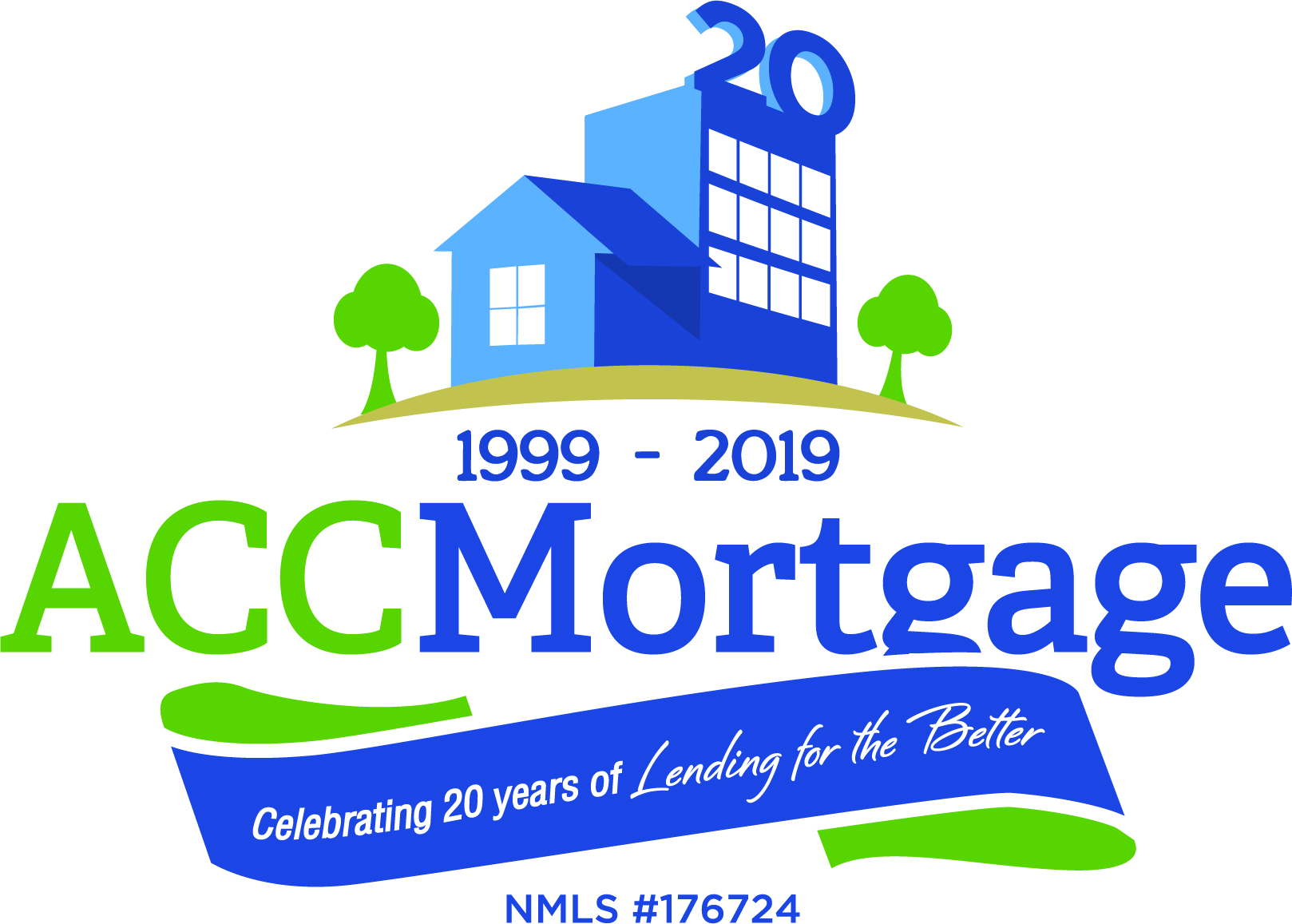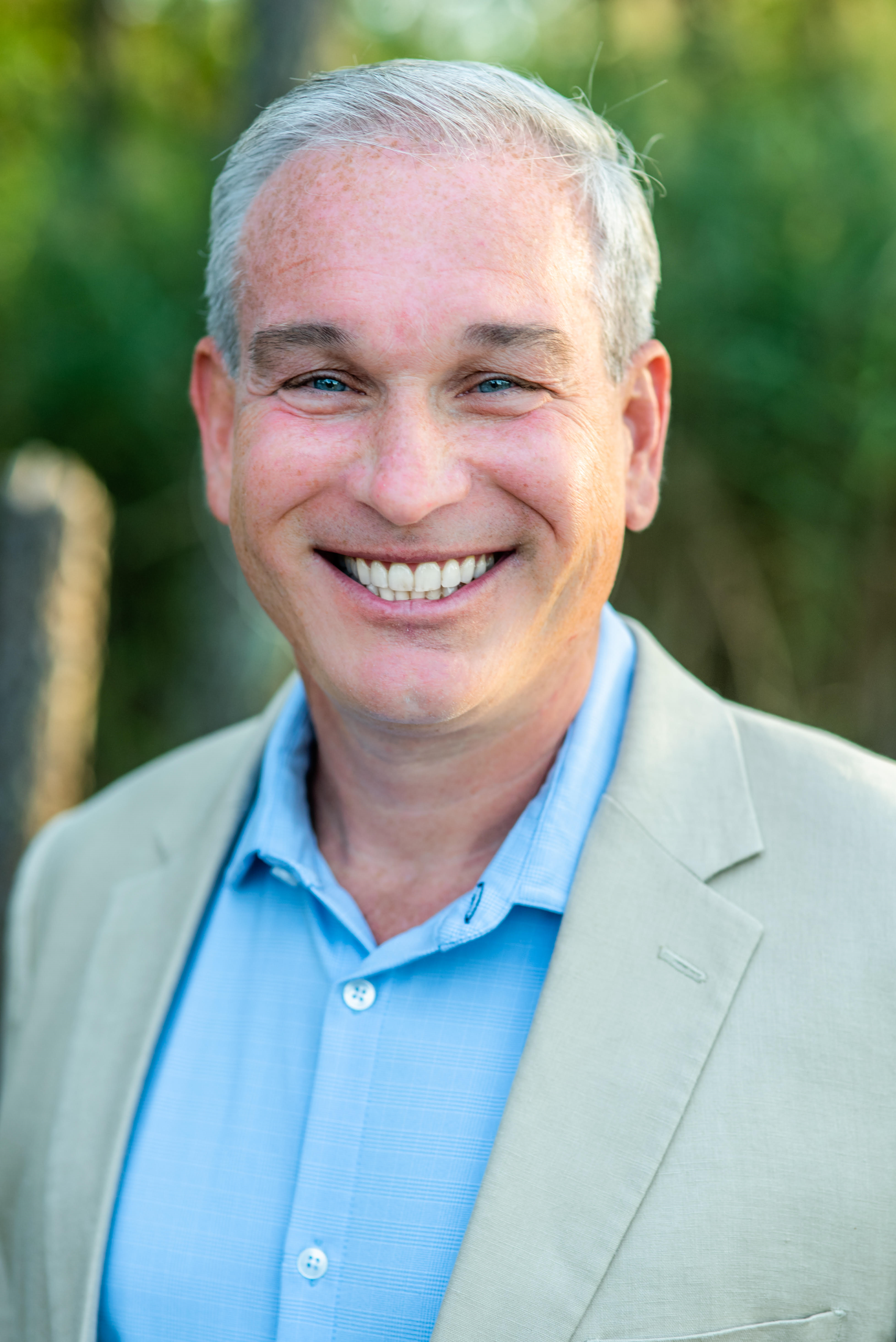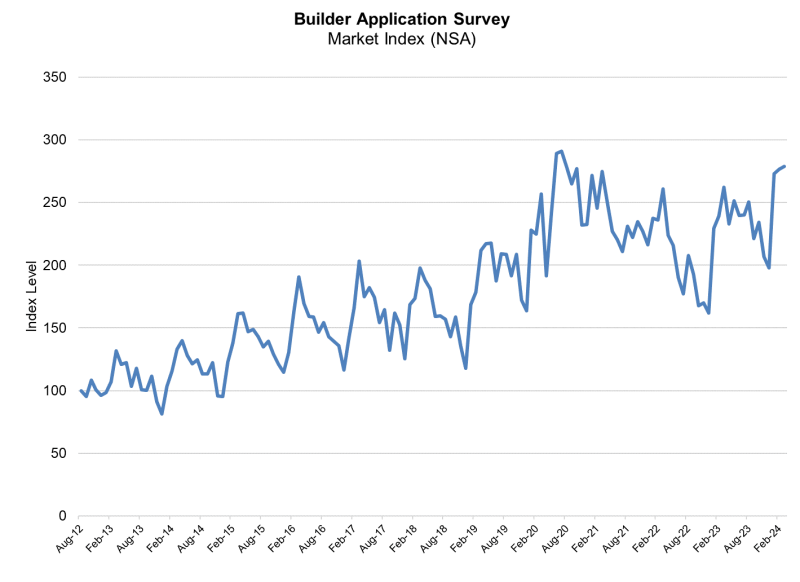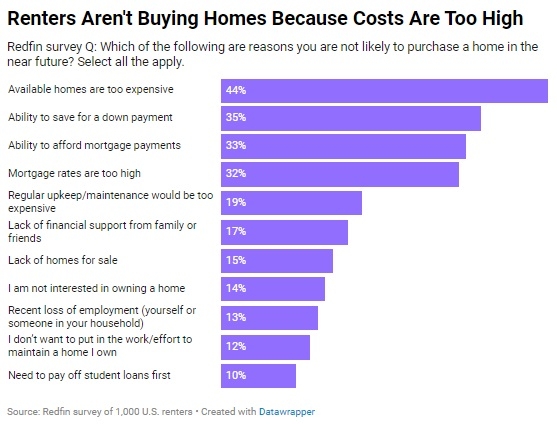Advertisement
NMP Mortgage Professional of the Month: Robert Senko, President, ACC Mortgage

Robert Senko is president of ACC Mortgage, headquartered in Rockville, Md. For this edition of National Mortgage Professional Magazine’s Mortgage Professional of the Month, Senko offered insight into his career and his view of the state of the industry and the economy.
 How did you first get into the mortgage profession? Was this your original career choice?
How did you first get into the mortgage profession? Was this your original career choice?
Robert Senko: After graduating the University of Maryland with a marketing and finance degree, I started working in New York City doing marketing and sales promotions around the country. It was a great job for a recent college graduate, and I could see the country doing event marketing. We worked for big firms like Pepsi and Miller Beer, promoting products at radio station, bars, college campuses, halftime of NBA games, festivals, etc. I certainly learned early on the value of marketing and advertising. I also learned that during the early 90’s recession, marketing and advertising budgets were the first to get cut. That was a good economic and life lesson.
What was the path that led you to the leadership of ACC Mortgage?
Robert Senko: After the marketing firm shuttered, I decided I did not want to be in an industry that was the first level of business cut. Ironically, my boss was also considering a career change and brought me to a recruiting event that talked about selling term life insurance and mortgage products to save people monthly cash flow. It opened my eyes to the financial services world and with that, I moved back to the Washington, D.C., area and found a company in the classified section that was, “Willing to train loan officers call 301-555-XXXX.” They were willing to train me for no pay and I was willing to learn.
 How did you first get into the mortgage profession? Was this your original career choice?
How did you first get into the mortgage profession? Was this your original career choice?Robert Senko: After graduating the University of Maryland with a marketing and finance degree, I started working in New York City doing marketing and sales promotions around the country. It was a great job for a recent college graduate, and I could see the country doing event marketing. We worked for big firms like Pepsi and Miller Beer, promoting products at radio station, bars, college campuses, halftime of NBA games, festivals, etc. I certainly learned early on the value of marketing and advertising. I also learned that during the early 90’s recession, marketing and advertising budgets were the first to get cut. That was a good economic and life lesson.
What was the path that led you to the leadership of ACC Mortgage?
Robert Senko: After the marketing firm shuttered, I decided I did not want to be in an industry that was the first level of business cut. Ironically, my boss was also considering a career change and brought me to a recruiting event that talked about selling term life insurance and mortgage products to save people monthly cash flow. It opened my eyes to the financial services world and with that, I moved back to the Washington, D.C., area and found a company in the classified section that was, “Willing to train loan officers call 301-555-XXXX.” They were willing to train me for no pay and I was willing to learn.
I cut my teeth as a loan officer and did fairly well with rates that dipped below seven percent for the first time in a generation. When rates spiked and the refi wave crashed down, I learned a good second economic and mortgage lesson. I was then approached by a good friend, Brian Dacy, to help develop a wholesale B&C platform. I had closed a few B&C loans during my tenure as a loan officer, but obviously had no idea how to develop a wholesale platform. But this small firm was willing to hire me–no salary of course, you only eat what you will, but it gave me an opportunity to learn and work with a friend. Coincidentally, Brian is now the director of national sales here at ACC Mortgage.
We had some nice success and were acquired by an early pioneer in the B&C market, Cityscape. With the money I made working and stock options, I opened my first company Senko Financial Services, as a retail mortgage broker shop.
Side note … the application to become a broker in Maryland was one page … no fingerprints, no testing, no continuing education and proof you had $25,000. I was in business shortly after my 26th birthday.
Side note … the application to become a broker in Maryland was one page … no fingerprints, no testing, no continuing education and proof you had $25,000. I was in business shortly after my 26th birthday.
I grew that business to as far as my limited experience could take me and then was acquired by a publicly traded firm, Island Mortgage Network. This turned out to be a disaster: This firm was cooking the books and using a warehouse line to fund the operation. I got away from that company as quickly as I could before they were shuttered by the FBI.
 I bounced around for a little bit and decided I would take all the lessons in my short career and set up All Credit Considered Mortgage. ACC Mortgage would focus on the underserved markets: Self-employed, minority, credit-challenged. I realized I could never compete with the big companies in the traditional conventional world. I also realized people did not value you or your company, they only focused on price.
I bounced around for a little bit and decided I would take all the lessons in my short career and set up All Credit Considered Mortgage. ACC Mortgage would focus on the underserved markets: Self-employed, minority, credit-challenged. I realized I could never compete with the big companies in the traditional conventional world. I also realized people did not value you or your company, they only focused on price.But non-QM lending allowed me and my team to offer a value proposition in the marketplace and I did not see myself being easily replaced in this market niche. I also saw through my limited career companies go from boom to bust. They became very bloated with overhead and could not ride out the eventual market correction that always occurred and will continue to occur.
You’ve been at the helm of ACC for the past 20 years. Looking back, what do you see as the greatest accomplishments and what are some of the challenges that you faced over this time?
Robert Senko: Aside from simply being able to survive for 20 years, which was a by-product of the philosophy I employed from day one, I have a few accomplishments/decisions that make me proud. In 2004, I started lending my own money and selling loans in the secondary market. I saw some niches, found a market and risked my own capital. Like most in the mortgage industry during this era, a lot of money was made, so I wasn’t the smartest, richest or biggest, but I did have a lot of my money at risk.
You’ve been at the helm of ACC for the past 20 years. Looking back, what do you see as the greatest accomplishments and what are some of the challenges that you faced over this time?
Robert Senko: Aside from simply being able to survive for 20 years, which was a by-product of the philosophy I employed from day one, I have a few accomplishments/decisions that make me proud. In 2004, I started lending my own money and selling loans in the secondary market. I saw some niches, found a market and risked my own capital. Like most in the mortgage industry during this era, a lot of money was made, so I wasn’t the smartest, richest or biggest, but I did have a lot of my money at risk.
Leading up to January of 2007, I started hearing and sensing some capital market issues that reminded me of the late 90’s when Long Term Capital Management collapsed, and good companies seemingly shuttered overnight. On a gut feeling, I sold all of the loans in our portfolio, moved my personal wealth from stocks to cash and exited the private money business. Six weeks later, New Century collapsed, then came the days of the Implode-A-Meter and the daily news of companies closing. When the dust settled, all of these bigger, smarter companies were no longer around and ACC was alive with a healthy balance sheet, a new business partner and no debt. We were ready to lend again.
I am also quite proud that the U.S. Treasury deemed ACC worthy of the Community Development Financial Institution (CDFI) certification. This is a very noble subsection of the Treasury that supports underserved markets though out the United States. The process to get approved took almost a year, so this was certainly not a rubber stamp process.
Lastly, and most recently, we have struck a partnership with a large fund. Contractually and legally, I cannot mention the name in the media, but the combination of our experience and cheaper capital will make ACC a major player in the market in terms of product and pricing. But the simple fact a company of this size and caliber would even consider working directly with us makes me proud of everything I have built over the past 20 years. This partnership will allow us to compete with the biggest non-QM companies in the market.
 What makes ACC Mortgage stand out from the competition?
What makes ACC Mortgage stand out from the competition?
Robert Senko: Since 1999, we have never stopped non-QM lending. We have been able to offer products that not only helped consumers, but have performed. Our products are currently on the cutting-edge of the non-QM market. I went to the University of Maryland when it was easy to get into. So, I try to keep things as simple as possible when I teach people about ACC and what separates us from the world. I teach people that they can determine if a deal makes sense in about 30 seconds if they listen.
 What makes ACC Mortgage stand out from the competition?
What makes ACC Mortgage stand out from the competition?Robert Senko: Since 1999, we have never stopped non-QM lending. We have been able to offer products that not only helped consumers, but have performed. Our products are currently on the cutting-edge of the non-QM market. I went to the University of Maryland when it was easy to get into. So, I try to keep things as simple as possible when I teach people about ACC and what separates us from the world. I teach people that they can determine if a deal makes sense in about 30 seconds if they listen.
Good lending can be explained in our simple three-point lending philosophy that remains as relevant today as it did in 1999 when I began teaching loan officers and account executives:
First, the Ability to Repay: Yes, I know Dodd-Frank put this in a few years ago, but this is not a new concept. Why would I give someone a loan who I didn’t think they can afford? I need to sleep at night. So, let’s prove their income and there is more than one way to skin a cat when it comes to proving income. Second, you must have skin in the game. Everyone needs to be vested: Borrower and lender. Risk versus reward. Somehow this concept got lost along the way. If a borrower is willing to put their hard earn dollars down, then that is a good indicator of their “Willingness to repay.” They stand to lose money. Third, the benefit to the borrower. This is the driving force of everything we do. If you make a loan for the borrower that you cannot articulate, why this is good for them and why do it? We ask the next question to make sure we are doing right by the customer.
If a loan doesn’t perform, we stand to lose money. Our job isn’t to make loans that just close, but they need to perform for our investors and partners. Unfortunately, not everyone understands or cares about loans performing. They just want them to close. Real estate agents and loan officers work for a one-time commission, so it is understandable that interest are not always inline. If we do what is right by all parties, everyone wins.
You mentioned becoming a CDFI. Why did you opt to take on that designation? And what does this entail?
Robert Senko: Before the non-QM secondary market started to heat up in 2015, I thought the only way to develop some non-traditional mortgage products would be with some governmental support. In theory, the government bond program, through the CDFI, could be used as financing tool to support non-QM products. The market began to fill this void and continues to help fill this need, so partnering with the Treasury is not necessary today, but it’s nice to know the option may exist.
Maintaining this certification requires me to annually show that I am still servicing these underserved markets.
How does your company respond to online reviews–both positive and negative–of your services?
Robert Senko: Fortunately, we have not been the recipient of too many negative reviews. I send a letter to each loan officer that submits a loan to our company with my direct e-mail if they are having an issue. Sometimes their complaints are born out of unfamiliarity and expectations of non-QM. Sometimes our team makes a mistake and then it becomes a teaching moment for us to share.
How does your company respond to online reviews–both positive and negative–of your services?
Robert Senko: Fortunately, we have not been the recipient of too many negative reviews. I send a letter to each loan officer that submits a loan to our company with my direct e-mail if they are having an issue. Sometimes their complaints are born out of unfamiliarity and expectations of non-QM. Sometimes our team makes a mistake and then it becomes a teaching moment for us to share.
We celebrate positive reviews and also use them as teaching moments to see what good customer service and communication can do for a company. Sometimes you actually can develop a better relationship after a negative review because that person is simply wanting to be heard and if you can articulate what needs to be done for the next deal, they are very appreciated.
How do you view the overall state of today’s mortgage industry? And, where do you see the industry heading in the next 12 months?
Robert Senko: Going back to the mid-90’s, I felt like the like the mortgage industry had a proper balance of products to support a growing economy. The market feels very similar with the growth of non-QM. Non-QM should not be the tail wagging the dog, but it should be an integral part of every loan officer’s product offerings.
Lately, there have been jitters over the potential for a recession. Do you see a recession on the horizon? And how will today’s housing market respond to a recession.
Robert Senko: I do not see a recession on the near-term horizon or any threats to the housing market. Let me extrapolate. In my adult life time, every recession was led by over leverage. Early 90’s overleverages of the Savings & Loans. The late 90’s was over leveraging of the stock market. In 2008, it was over the leveraging of real estate with 100 percent stated-income, which caused artificial price inflation and people bought homes they could not afford.
How do you view the overall state of today’s mortgage industry? And, where do you see the industry heading in the next 12 months?
Robert Senko: Going back to the mid-90’s, I felt like the like the mortgage industry had a proper balance of products to support a growing economy. The market feels very similar with the growth of non-QM. Non-QM should not be the tail wagging the dog, but it should be an integral part of every loan officer’s product offerings.
Lately, there have been jitters over the potential for a recession. Do you see a recession on the horizon? And how will today’s housing market respond to a recession.
Robert Senko: I do not see a recession on the near-term horizon or any threats to the housing market. Let me extrapolate. In my adult life time, every recession was led by over leverage. Early 90’s overleverages of the Savings & Loans. The late 90’s was over leveraging of the stock market. In 2008, it was over the leveraging of real estate with 100 percent stated-income, which caused artificial price inflation and people bought homes they could not afford.
Values are not going wild today. Proper regulation is not allowing the proliferation of stated income. I believe the inverted yield curve is in response to low rates in the global market. If a proper trade deal can be struck with China, you will see a global lift and rally in the stock market. If nothing gets done, a recession could loom for 2021. Eventually, a recession will occur and everyone needs to be prepared for it
In your professional opinion, what can be done to bring more young people into mortgage careers?
Robert Senko: Young people need to be excited to make money, be excited about capitalism. We have lost a generation or more of young people in the industry. When I go to various conferences, I still feel like the young guy and I just turned 50. Training programs are excellent, but expensive for companies.
Looking back on your career, what do you see as your peak accomplishment?
Robert Senko: Being interviewed by you. Seriously, the fact I could be interviewed for an esteemed publication like National Mortgage Professional Magazine that my peers read is a huge compliment. So today is my peak accomplishment. But tomorrow will be a new peak. Every day in this industry offers a new challenge and ability to learn something new. I just hope I have helped co-workers and customers alike and maybe made you laugh along the way.
How do you spend your leisure hours?
Robert Senko: Non-summer, my free time is spent taking my kids to youth sporting events, mostly hockey. I have four sons and I love watching them play and what sports can do for them. I believe team sports gives children a window into life. Practice, work with others, learn to deal with defeat and how to win. Communicate, listen to coaches, work with teammates toward a collective goal. Isn’t that life? In the summers, I enjoy time in Dewey Beach, Del., listening to live music with my wife, family and friends.
In your professional opinion, what can be done to bring more young people into mortgage careers?
Robert Senko: Young people need to be excited to make money, be excited about capitalism. We have lost a generation or more of young people in the industry. When I go to various conferences, I still feel like the young guy and I just turned 50. Training programs are excellent, but expensive for companies.
Looking back on your career, what do you see as your peak accomplishment?
Robert Senko: Being interviewed by you. Seriously, the fact I could be interviewed for an esteemed publication like National Mortgage Professional Magazine that my peers read is a huge compliment. So today is my peak accomplishment. But tomorrow will be a new peak. Every day in this industry offers a new challenge and ability to learn something new. I just hope I have helped co-workers and customers alike and maybe made you laugh along the way.
How do you spend your leisure hours?
Robert Senko: Non-summer, my free time is spent taking my kids to youth sporting events, mostly hockey. I have four sons and I love watching them play and what sports can do for them. I believe team sports gives children a window into life. Practice, work with others, learn to deal with defeat and how to win. Communicate, listen to coaches, work with teammates toward a collective goal. Isn’t that life? In the summers, I enjoy time in Dewey Beach, Del., listening to live music with my wife, family and friends.
Phil Hall is managing editor of National Mortgage Professional Magazine. He may be reached by e-mail at [email protected].
This article originally appeared in the September 2019 print edition of National Mortgage Professional Magazine.
About the author





